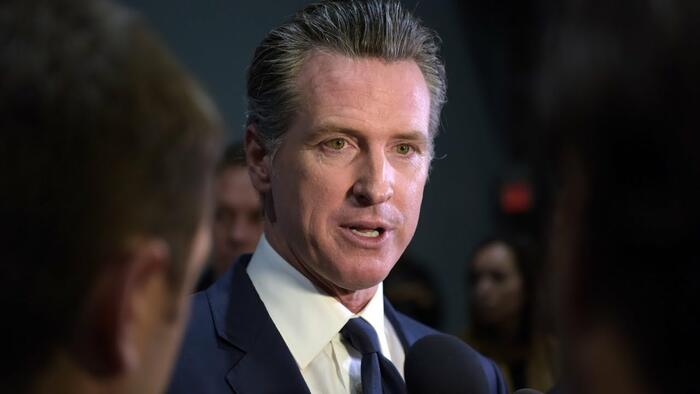
California prevents $18.6 billion in debt, with spending on employers
California’s recent decision not to repay about $20 billion borrowed from the federal government to cover unemployment benefits during the pandemic it will fall on the shoulders of employersaccording to the experts.
California Governor Gavin Newsom (D)
“The state should have taken care of the loans with the COVID money it received from the government in 2021,” said Marc Joffe, a policy analyst at the Cato Institute, a Washington-based public policy think tank. , DC, in a statement to the Times.
In the 2023-2024 state budget proposal, $750 million was set aside to start paying off the loansuntil Gov. Gavin Newsom rescinded the provision in early January, leaving the state’s companies responsible for the loans, as required by federal regulations, so the The federal unemployment tax rate of 6% will increase by 3% annually starting in 2023 until the loan is extinguished.
“California is not really an employer friendly state” Joffe said. “This won’t be a difference between a business staying open or closing, but it’s just one more burden on top of the many burdens the state places on employers.“
In all, 22 states borrowed money for unemployment insurance from the federal government. All but four, California, Colorado, Connecticut and New York, have paid off their debts – with California owing the most by far at $18.6 billion as of May 2, followed by New York at $8 billion, Connecticut at $187 million and Colorado at $77 million, according to U.S. Treasury data.
More via Epoch Times,
Initially, the state borrowed from its reserves to pay benefitsbut after draining its coffers it borrowed to cover expenses, analysts said.
Compounding the situation were unprecedented levels of fraud across the state, due to limited oversight and outdated computer systems, according to Lee Ohanian, an economics professor at the University of California-Los Angeles.
Analytics firm LexisNexis estimated the total cost of the fraud at $32.6 billion.
Investigations have since uncovered illegitimate unemployment benefit payments being made to convicted criminals, with one address receiving 60 separate fraudulent payments.
Fraud is a historically persistent problem with the program, and a $2 million federal grant in 2013 sought to address the problem with new computer software systems.
The upgrade successfully stopped cases of fraud, but further improvements stalled with the end of the grant in 2016, due to the agency’s reluctance to assume the annual expense of the third-party service.
“They were smart and dumb,Ohanian told The Epoch Times.
With an annual investment cost of $2 million, the program would have cost $14 million to run since it ended.
“Unfortunately, this is just a trifecta of bad decisions,” Ohanian said. “The [Employment Development Department] made a bad decision not to renew the lease on the fraud detection software, the state government took out a loan and chose to pay off the debt, which is outrageous, and now the companies are paying more taxes because of the state government’s incredibly reckless decisions and mistakes.”
Reports that the state is apologizing to the federal government were met with resistance from policy experts, including Ohanian.
“We’ve made a lot of bad decisions and we expect the rest of the country to pay for it,” He said. “It also raises questions about the future: If the state defaults on $20 billion in federal loans, how safe are California’s municipal bonds?”
